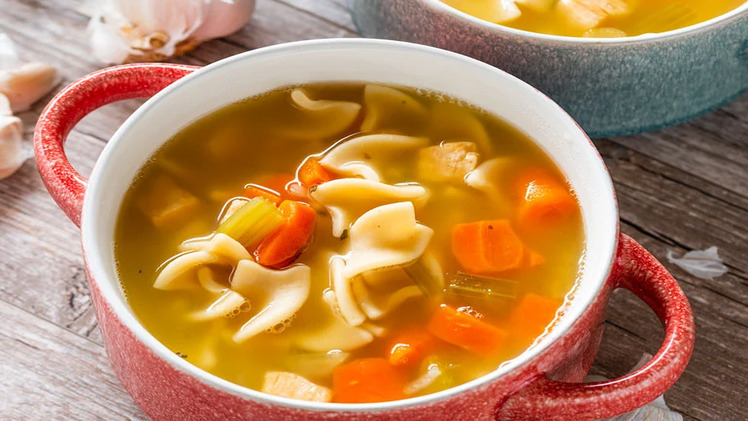Getting sick is never pleasant, and one of the common symptoms of illness is a loss of appetite. However, it’s essential to nourish your body, even when you don’t feel like eating, as proper nutrition plays a crucial role in recovery. In this article, we’ll explore what to eat when you’re sick and have no appetite to help you get through those tough times.
1. Clear Broth Soups:
Clear broths, such as chicken or vegetable broth, are light and easily digestible. They provide essential fluids to prevent dehydration while supplying some nutrients and electrolytes. The warmth of the soup can also soothe a sore throat or provide comfort when you’re under the weather.
2. Ginger Tea:
Ginger has natural anti-inflammatory and soothing properties, making ginger tea an excellent choice for upset stomachs. You can make ginger tea by steeping fresh ginger slices in hot water. Adding a bit of honey can provide some gentle sweetness to your tea.
3. Crackers or Toast:
Simple, plain crackers or dry toast are easy on the stomach and provide a source of carbohydrates. These bland options can help settle your stomach while offering some necessary energy.
4. Rice and Plain Pasta:
When you have little appetite, plain rice or pasta can be a good source of easily digestible carbohydrates. These foods can help maintain your energy levels even when you’re not eating much.
5. Applesauce and Bananas:
Fruits like applesauce and bananas are gentle on the stomach and can be a good source of vitamins and minerals. They are soft and easy to swallow, making them ideal choices for those with a sore throat or difficulty eating.
6. Popsicles:
Frozen fruit popsicles or ice pops can help soothe a sore throat, keep you hydrated, and provide a touch of flavor when plain water doesn’t seem appealing.
7. Smoothies:
If you’re finding it difficult to eat solid foods, a nutritious smoothie can be a great option. Blend fruits, yogurt, and a bit of honey for added flavor. You can even add a protein powder if you’re up for it to ensure you get some protein in your diet.
8. Oatmeal:
Oatmeal is a comforting and easily digestible option. You can prepare it with water or a milk alternative and add a touch of honey or a few slices of banana for flavor.
9. Yogurt:
Yogurt is not only a good source of probiotics that support your gut health, but it’s also easy to eat when you don’t have much of an appetite. Opt for plain yogurt to avoid excess sugar, and add a drizzle of honey or a few berries for flavor.
10. Nutritional Supplements:
In cases where you can’t eat much of anything, or your illness has affected your ability to absorb nutrients, nutritional supplements can be an option. Nutritional drinks or powders can provide essential vitamins and minerals to support your recovery.
Stay Hydrated:
It’s crucial to stay hydrated when you’re sick, as fever, sweating, and other symptoms can lead to dehydration. In addition to the foods mentioned, clear fluids like water, herbal teas, or electrolyte drinks can help you stay properly hydrated.
Listen to Your Body:
While it’s essential to maintain some form of nutrition when you’re unwell, it’s equally important to listen to your body. If you’re not hungry, don’t force yourself to eat large meals. Eating small, frequent portions can be more manageable and less intimidating when you have no appetite.
Consult a Healthcare Provider:
If your illness persists, or you have underlying health conditions that are causing a loss of appetite, it’s advisable to consult a healthcare provider. They can offer guidance and ensure you’re receiving the necessary nutrition and medical attention to recover.
In conclusion, when you’re sick and have no appetite, choosing the right foods and fluids is crucial to support your recovery. Opt for easily digestible, bland options that are gentle on the stomach and focus on staying hydrated. Listening to your body and consulting a healthcare provider when necessary can help you navigate the challenging period of being unwell and eventually regain your appetite and strength.


